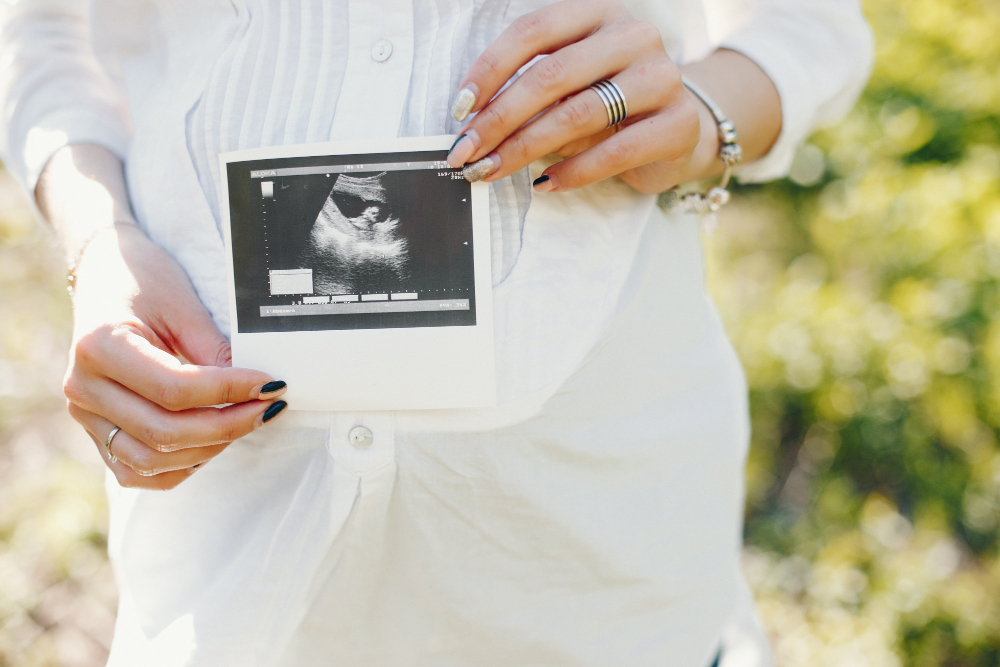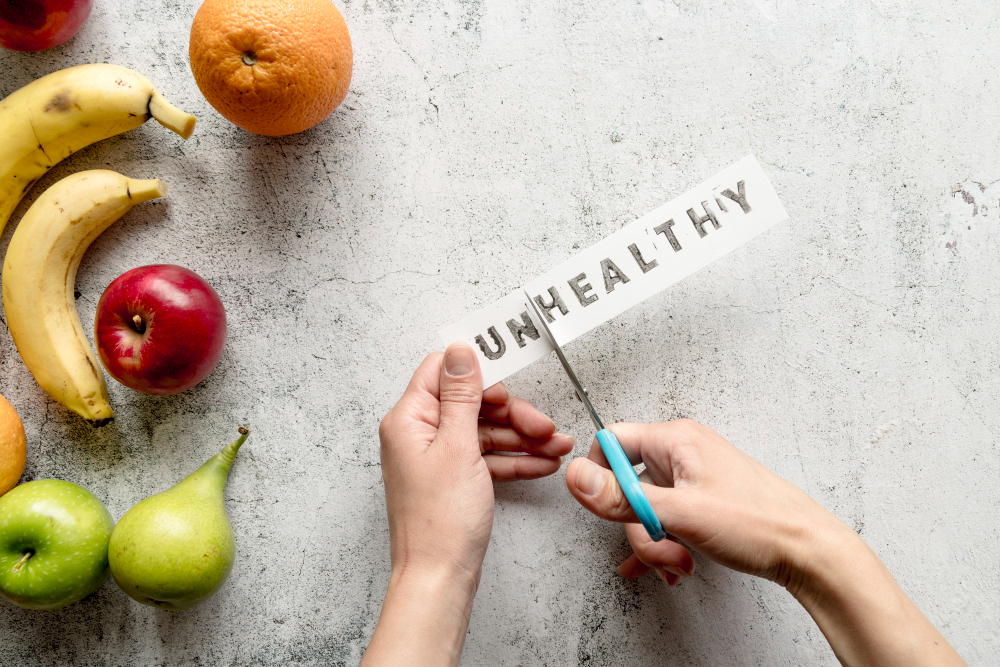
During pregnancy, proper nutrition is crucial because it supports the growth and development of both the mother and the developing fetus. The developing fetus relies entirely on the mother’s nutrient intake for growth. A deficiency in essential nutrients can lead to developmental issues and complications. Nutrient-rich foods supply the building blocks for fetal organs, tissues, and bones.
This article will cover various aspects of nutrition during pregnancy, from the importance of pre-conception nutrition to detailed guidance on each trimester’s dietary requirements. We will also delve into special considerations, such as gestational diabetes, food safety, and vegetarian or vegan pregnancy diets. Additionally, we’ll explore the significance of staying active and fit during pregnancy and how it complements proper nutrition
Preparing for a Healthy Pregnancy

Pre-conception nutrition is critical as it sets the stage for a healthy pregnancy. Adequate intake of essential nutrients like folic acid, iron, and calcium before conception can reduce the risk of birth defects and complications. For example, folic acid is vital for neural tube development, which occurs in the first few weeks of pregnancy, often before a woman even knows she’s pregnant.
Folic Acid and Prenatal Vitamins
Folic acid, a B-vitamin, plays a key role in preventing neural tube defects, which can affect the baby’s brain and spinal cord. It’s recommended that women of childbearing age consume 400-800 micrograms of folic acid daily. Prenatal vitamins are often recommended because they provide a range of essential vitamins and minerals tailored to pregnancy, ensuring the mother and baby receive adequate nutrition.
First Trimester Nutrition
The first trimester is marked by the rapid development of the fetus’s major organs and structures. Therefore, the nutrient needs during this period are critical. For example, folate is crucial for DNA synthesis and cell growth. Iron is essential for oxygen transport to the growing fetus and the mother’s increased blood volume
Morning Sickness and Managing Food Aversions
Morning sickness is a common issue during the first trimester. While its exact cause is not fully understood, hormonal changes are believed to play a role. Managing food aversions and nausea often involves eating small, frequent meals, focusing on bland, easily digestible foods, and staying hydrated.
Foods to Focus on for Early Pregnancy
For early pregnancy, it’s essential to focus on nutrient-dense foods that provide essential vitamins and minerals. Leafy greens are rich in folate, lean meats are excellent sources of iron, and dairy products provide calcium. Incorporating a variety of foods ensures a broad spectrum of nutrients are available for fetal development.
Second Trimester Nutrition
During the second trimester, calorie and nutrient requirements increase as the baby undergoes rapid growth. The mother’s energy needs rise to support fetal development, increased blood volume, and the preparation of milk-producing glands.
Dealing with Common Pregnancy Cravings
Pregnancy cravings are common during the second trimester. These cravings can vary widely from sweet to savory foods. It’s important to manage them healthily by choosing nutrient-rich alternatives. Craving sweets? Opt for fruits instead of sugary snacks. Craving salty snacks? Choose nuts or whole-grain crackers over chips.
Importance of Hydration
Proper hydration becomes even more critical during pregnancy, especially as the body’s blood volume increases. Dehydration can lead to complications like constipation, urinary tract infections, and even preterm labor. Pregnant women should aim to consume about 8-10 cups (64-80 ounces) of fluids per day, primarily from water, herbal teas, and milk.
Third Trimester Nutrition

The third trimester is characterized by rapid fetal growth, making it essential to meet the baby’s increasing nutrient demands. Adequate protein intake is crucial for the development of the baby’s organs and tissues. Additionally, calcium is vital for bone development, while omega-3 fatty acids support brain development
Foods that Aid in Fetal Development
To support fetal development in the third trimester, focus on foods rich in essential nutrients. For example, fatty fish like salmon and trout are excellent sources of omega-3 fatty acids. Dairy products provide calcium. Leafy greens and legumes offer folate and iron. Ensuring a balanced diet during this time is key to providing the necessary nutrients for the baby’s growth
Preparing for Labor and Birth Through Nutrition
Proper nutrition during the third trimester can help prepare the body for labor and childbirth. Iron, for instance, helps prevent anemia, which can cause fatigue and complications during labor. Fiber-rich foods prevent constipation, a common discomfort in late pregnancy. Staying hydrated is also crucial, as dehydration can lead to fatigue and decreased stamina during labor.
Special Considerations
Gestational Diabetes and Dietary Management
Gestational diabetes is a condition where blood sugar levels become elevated during pregnancy. It can lead to complications for both the mother and the baby. Managing gestational diabetes often involves monitoring carbohydrate intake and choosing complex carbohydrates that have a slower impact on blood sugar levels.
Food Safety During Pregnancy
Food safety is paramount during pregnancy to prevent foodborne illnesses that can harm both the mother and the baby. Foods that are typically avoided during pregnancy include raw seafood, undercooked meat and eggs, unpasteurized dairy products, and certain types of fish high in mercury. Proper food handling and hygiene are also essential.
Vegetarian and Vegan Pregnancy Diets
Maintaining a vegetarian or vegan diet during pregnancy is possible but requires careful planning to ensure adequate nutrient intake. Key nutrients like protein, iron, calcium, and vitamin B12 must be obtained from plant-based sources or supplements. Consulting with a healthcare provider or nutritionist can help create a well-balanced vegetarian or vegan pregnancy diet.
Sample Pregnancy Meal Plan
A sample pregnancy meal plan should prioritize nutrient-rich foods to support both the mother and the developing baby

Breakfast
Oatmeal with sliced bananas and a sprinkle of chia seeds
Greek yogurt with honey and berries
Whole-grain toast with avocado
Snack
Carrot and cucumber sticks with hummus
A small handful of almonds
Lunch
Grilled chicken or tofu salad with lots of colorful veggies and a vinaigrette dressing
Quinoa or brown rice on the side
Snack
Greek yogurt parfait with granola and mixed fruits
Dinner
Baked salmon or a bean-based dish (like black bean stew)
Steamed broccoli or spinach
Sweet potato
Snack (if needed)
A piece of whole fruit like an apple or an orange
✓ Remember to stay hydrated throughout the day, and consult with a healthcare provider or a registered dietitian to tailor a meal plan that suits your specific dietary needs during pregnancy. Additionally, prenatal supplements like folic acid and iron may be recommended by your healthcare provider
✓ A balanced pregnancy diet includes a mix of fruits, vegetables, whole grains, lean proteins, and dairy. This section can offer detailed information on each food group’s importance and how to incorporate them into daily meals. Nutrient-dense snacks and hydration tips can also be provided to support a balanced diet.
Foods to Avoid During Pregnancy
Raw or Undercooked Foods:
Raw or undercooked foods, including raw seafood, eggs, and meat, may contain harmful bacteria such as Salmonella or Listeria. These bacteria can lead to foodborne illnesses that can be more severe during pregnancy due to a weakened immune system. In severe cases, they can lead to miscarriage or preterm birth
High-Mercury Fish:
Some fish, like shark, swordfish, king mackerel, and tilefish, contain high levels of mercury. Mercury is a neurotoxin that can harm the developing baby’s nervous system. It’s advisable to limit consumption of these fish during pregnancy and choose low-mercury options like salmon, trout, and sardines
Caffeine:
While moderate caffeine consumption (about 200-300 milligrams per day) is generally considered safe during pregnancy, excessive caffeine intake should be avoided. High caffeine intake has been linked to an increased risk of miscarriage and preterm birth. Caffeine can also interfere with the absorption of certain minerals, so moderation is key.
Unpasteurized Dairy Products
Unpasteurized dairy products, including some soft cheeses, can contain harmful bacteria like Listeria. Listeriosis, caused by Listeria infection, can lead to severe illness in both the mother and the baby. It’s safer to choose pasteurized dairy products during pregnancy.
Alcohol
Alcohol should be completely avoided during pregnancy. It can lead to fetal alcohol spectrum disorders (FASDs), which can cause developmental and behavioral problems in the baby. Even small amounts of alcohol can be harmful, so it’s best to abstain entirely.
Excess Vitamin A
High doses of vitamin A, particularly in the form of supplements, should be avoided during pregnancy as excessive intake can harm fetal development. However, it’s important to note that moderate amounts of vitamin A from food sources like fruits and vegetables are safe and beneficial.
Staying Active and Fit

✓ Prenatal exercise plays a critical role in promoting a healthy pregnancy. Engaging in regular physical activity can offer several benefits. It helps improve cardiovascular health, maintain a healthy weight, reduce stress, and promote better sleep. Moreover, staying active can enhance endurance, which can be particularly useful during labor and childbirth.
✓ The synergy between proper nutrition and fitness is undeniable during pregnancy. Nutrition provides the necessary energy and nutrients for physical activity. Combining the two helps in managing weight gain, blood sugar levels, and overall health. Maintaining a balanced diet supports the energy required for workouts and aids in muscle recovery.
✓ During pregnancy, exercise can help alleviate common discomforts such as back pain and swelling. It can also improve mood and reduce the risk of gestational diabetes. However, it’s crucial to tailor exercise routines to each trimester, as the body undergoes significant changes. Before starting or modifying an exercise routine, pregnant women should consult with their healthcare provider to ensure safety.
Examples of Suitable Prenatal Exercises
Swimming: This low-impact exercise is gentle on joints while providing a full-body workout.
Walking: A simple and accessible exercise that can be adjusted to various fitness levels
Yoga: Prenatal yoga focuses on gentle stretches, relaxation, and breathing techniques.
Low-Impact Aerobics: These classes are designed specifically for pregnant women, combining cardio and strength training.
✓Pregnant women should be aware of their body’s cues and adapt their exercise intensity and duration accordingly. Staying active should be a consistent part of a healthy pregnancy routine, complementing proper nutrition to ensure the well-being of both the mother and the baby.
A Final Word
In making informed dietary and lifestyle choices, expectant mothers can navigate the challenges and joys of pregnancy while reducing the risk of complications. This journey is a remarkable one, and by prioritizing a well-balanced diet, staying active, and seeking professional guidance when needed, women can embrace the power of nutrition for a healthy and fulfilling pregnancy.
